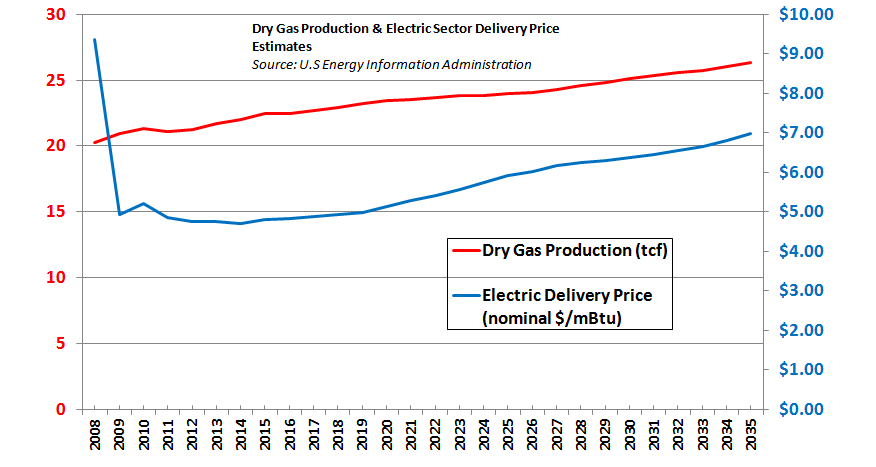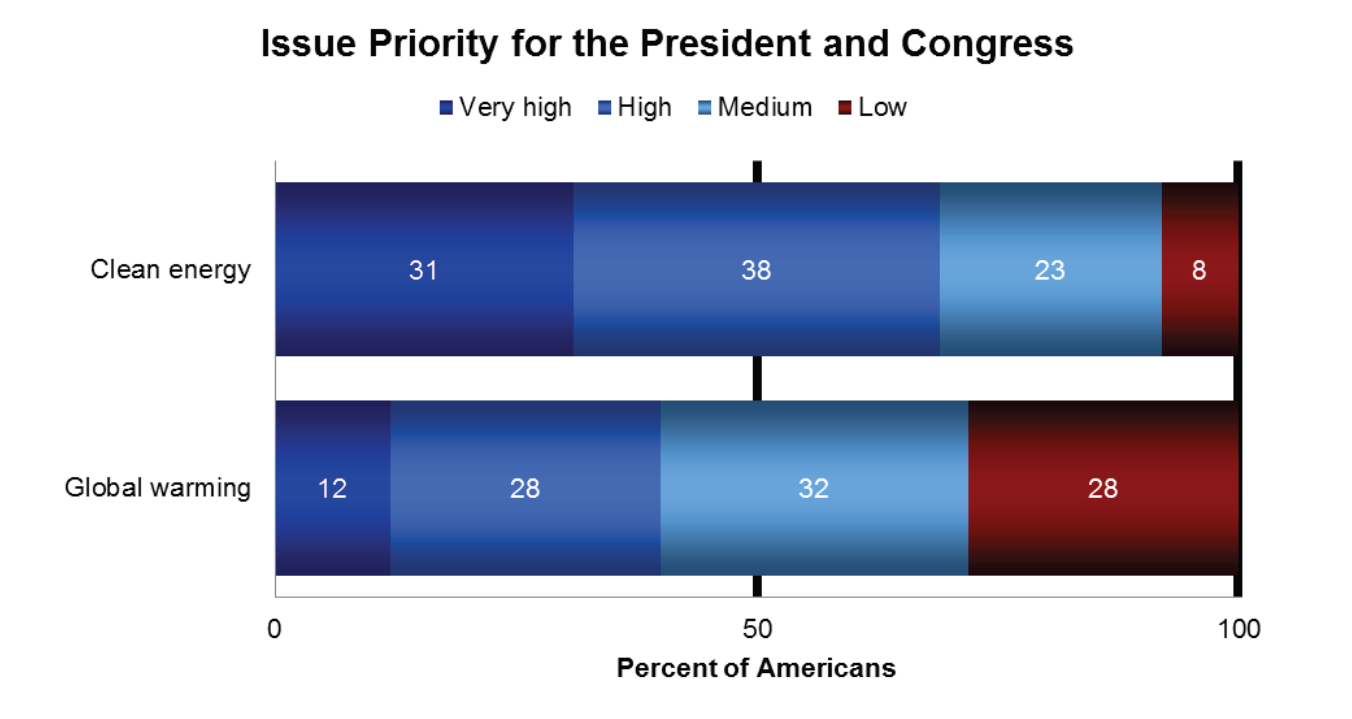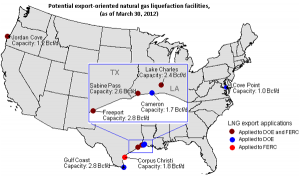587 item(s) were returned.
Domestic natural gas production continues to expand, while natural gas spot prices are at historic lows. Many utilities are responding to these changing market dynamics by building gas plants or “fuel-switching” existing power plants from more expensive fuels to gas. As a result, coal generation continues to fall. Due in part to price competition with natural gas, some Congressional “clean energy” subsidies may not be renewed. EIA projections suggest that domestic production will continue to increase, and that natural gas prices faced by electric utilities will remain below $7.00/mBtu, through 2035. [Source: EIA] What does near- to mid-term domestic natural… [more]
View InsightA new report – coauthored by researchers from the Brookings Institute, the World Resources Institute, and the Breakthrough Institute – examines the coming decline in subsidies and tax breaks for renewables, and what that decline might mean for the U.S. renewables industry. The report argues that the decline imperils the industry, but suggests that this issue presents an opportunity to reform the subsidies and programs currently in place. The American Recovery and Reinvestment Act of 2009 ushered in a brief era of heightened support for the clean tech and renewable energy sectors, providing just over $150 billion through 2014. However,… [more]
View InsightA recent study from the Government Accountability Office (GAO) found that the U.S. government underestimates the cost of decommissioning nuclear power plants. “The Government Accountability Office scrutinized 12 of the nation’s 104 power reactors and found that for 5 of them, the decommissioning cost calculated by the Nuclear Regulatory Commission (NRC) was 76 percent or less of what the reactor’s owner thought would be needed.” [New York Times] For example, the NRC estimated the cost of decommissioning the Indian Point 3 reactor in Buchanan, N.Y. at $474.2 million, significantly lower than the reactors owner’s estimate of $836.45 million. Representative Ed… [more]
View InsightThree recent efforts – two private, and one public – could shape the future of U.S. shale gas and oil development. The Marcellus Shale Coalition (MSC), an industry group, released Recommended Practices: Site Planning, Development and Restoration, offering general guidance for natural gas professionals developing or restoring shale plays in the Marcellus. Days later, the Appalachian Shale Responsible Producers Group (ASRPG), led by Andarko Energy, released their Recommended Standards and Practices, which again provides general guidance to well operators and shale play developers. Ohio Governor John Kasich has pushed legislation to the state’s legislature that the his office hopes will… [more]
View InsightOn April 26th, the Yale Project on Climate Change Communication and the George Mason University Center for Climate Change Communication released the results of a recent poll, suggesting that “overall, majorities of Americans say that global warming and clean energy should be among the nation’s priorities… and support a variety of climate change and energy policies.” The survey of 1,008 American adults found that: “92 percent of Americans think that developing sources of clean energy should be a very high (31%), high (38%), or medium (23%) priority for the president and Congress.” “91 percent of Democrats, 77 percent of Independents,… [more]
View InsightLast week, House and Senate Appropriations Committees approved separate and distinct versions of a Fiscal Year 2013 Energy and Water Development appropriations bill. The legislation sets spending levels for DOE, among other agencies, and specific programs such as the State Energy Program (SEP). The SEP is administered by DOE, and provides funding to states for use by State Energy Offices. According to the National Association of State Energy Officers (NASEO), with “SEP funds and the resources leveraged by them, the 56 State and Territory Energy Offices develop and manage strategic programs that support the private sector in increasing energy efficiency,… [more]
View InsightIn an April 26th speech to business leaders at the U.S. Chamber of Commerce, Nick Akins, President and CEO of American Electric Power, urged the U.S. to develop a comprehensive energy policy. Akins explained that a recent “perfect storm of circumstances” – including EPA regulations, diminished reliance on nuclear power, and low natural gas prices – are making natural gas the de facto favored fuel for power generation. This is a concern for Akins, who points out that natural gas prices have been volatile historically, and that relying on a single fuel source for power generation is risky. [Columbia Dispatch]… [more]
View InsightEastern Utah may see tar sand production begin later this year. A private company, the Alberta-based U.S. Oil Sands, has invested $6 million since 2005 to test the oil sands at its 6,000-acre lease in eastern Utah and develop pilot projects on state land. They were granted preliminary permits to begin production in 2009, and have been raising capital and developing plans to begin production. “We would expect to hopefully to have this up and running by about September of next year,” said Cameron Todd, CEO of U.S. Oil Sands. The Bureau of Land Management estimates that the sands could… [more]
View InsightIn 2007, US EPA began using renewable identification numbers (RINs) to track fuel producer compliance with the Energy Policy Act of 2005’s Renewable Fuel Standard (RFS), which calls for fuel blends to contain a minimum amount of renewable fuels. RINs quantify the biofuel, produced or imported, used in fuel blends. Fuel producers buy and sell them, and then submit them to demonstrate compliance. The complexity of RIN markets and RFS compliance has come under scrutiny lately, as several instances of fraud have emerged. In 2010, two small biofuel producers – Clean Green Fuel and Absolute Fuels – started selling fraudulent… [more]
View InsightAs American natural gas production continues to increase, the U.S. Department of Energy (DOE) is considering a greater number of applications from companies interested in exporting liquefied natural gas (LNG). At the same time, the Federal Energy Regulatory Commission (FERC) is seeing more applications from companies seeking to build new LNG export terminals and liquefaction facilities. Currently, the U.S. only exports LNG internationally by exporting natural gas imported from other countries, a practice that increased in 2011. So far, nearly all applications to export U.S. LNG to Free Trade Agreement (FTA) countries – eighteen countries including Australia, Canada, Chile, Israel,… [more]
View Insight

